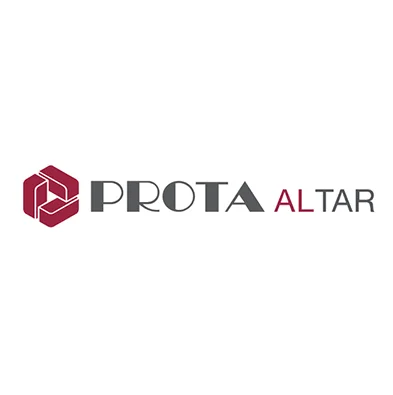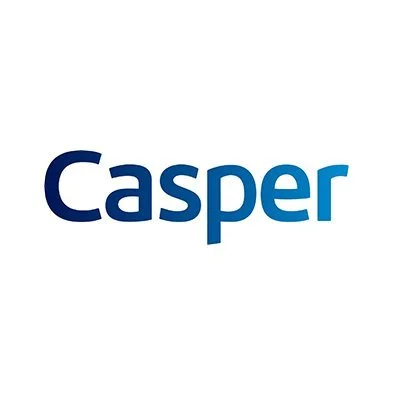A strong onboarding schedule is arguably the most critical investment your organization can make in talent retention. When your onboarding is on point, you can keep more than 8 out of 10 new hires and ramp up your team’s productivity by over 70 percent, according to research by Brandon Hall Group.
For UK businesses, where the cost of replacing a mid-level employee often runs into tens of thousands of pounds, getting the initial experience right is beyond HR’s concern because it directly affects your finances, even though you can’t see it on your P&L board.
The rise of hybrid and remote work has complicated the traditional new hire process, demanding a more efficient, standardized, and digital approach. If your current onboarding checklist consists of a single day of rushed paperwork and a forgotten login, you are likely burning money and losing valuable time.
Mistake 1: Treating Onboarding as a One-day Admin Task
The most common and costly error UK businesses make is condensing the entire employee induction into a single, chaotic day of paperwork and IT setup.
This “fire-hose” approach is a major risk, particularly regarding legal and financial exposure. Rushing through critical compliance training on topics like Right to Work verification, GDPR protocols, and Health & Safety regulations can lead to severe financial penalties and regulatory non-compliance. Furthermore, the new hire feels immediately undervalued and overwhelmed, significantly increasing the likelihood of early attrition.
Shift your mindset from a one-day event to a structured, phased employee onboarding process that lasts 30, 60, or even 90 days. Utilize a centralized Learning Management System (LMS) to deliver pre-boarding materials and manage compliance training efficiently.
Automating the delivery and tracking of essential policy documents and modules with an LMS like Vedubox creates a clear audit trail for every new hire. You can easily monitor and ensure compliance with all relevant legal requirements and regulations.
Mistake 2: A Disjointed Experience for Hybrid & Remote Staff
In the UK, the new flexible working regulations mean hybrid work is now a permanent fixture. A critical mistake is failing to create parity between the new hire’s experience, whether they are in the London office or working remotely from Manchester.
When remote onboarding is an afterthought, it creates a “two-tier” company culture. Remote staff may feel isolated and disconnected from key decision-makers. Struggling to build essential professional networks results in low morale, hinders collaboration, and inevitably leads to higher turnover. The cost is a fractured culture and reduced productivity.
Design a unified onboarding path using a blended learning approach. Crucially, utilize a virtual classroom for live, interactive sessions that bring all new hires — regardless of location — together simultaneously for shared experiences, Q&A, and team-building.
Vedubox’s integrated Virtual Classroom offers an excellent solution for dispersed teams. It ensures your remote onboarding is just as engaging and collaborative as your in-person induction. Facilitating real-time connections, breakout groups, and shared activities fosters a unified company culture from the start.
Mistake 3: Neglecting Cultural Immersion
It is easy to focus solely on technical skills in the new hire process, but if new employees learn their tasks without connecting to the company’s “how” and “why,” they are unlikely to stay long.
High employee engagement is directly linked to lower staff turnover and improved discretionary effort. In the UK, where staff turnover costs are substantial (including recruitment fees, training time, and lost productivity), ensuring cultural fit is a key financial issue. A lack of cultural immersion means the new hire is less invested and more likely to leave when the next opportunity arises.
Focus on activities that improve learner engagement and build social connections. Schedule virtual introductions with key stakeholders outside of their immediate team, and create informal communication channels dedicated to social learning and peer support.
Vedubox’s built-in forums, discussion boards, and social learning features create a welcoming digital space where new hires can build relationships, ask informal questions, and immerse themselves in your company culture.
Mistake 4: Inconsistent & Unmeasurable Training
Relying entirely on individual line managers to deliver training means training quality depends entirely on who the new hire reports to, with no central oversight or measurement.
Let’s call it what it is: inconsistency is a huge risk if you’re in a regulated industry—finance, healthcare, manufacturing, you name it. If your training isn’t consistent, your materials aren’t centralized, and your LMS reporting is patchy, you simply can’t show that everyone’s up to scratch. That leaves your business vulnerable to audits and quality control issues.
Centralize all training materials, documents, and assessments on a single platform to ensure consistency and quality control. Leverage employee training software with comprehensive reporting capabilities to track progress, measure knowledge retention, and identify immediate knowledge gaps.
The LMS reporting feature in Vedubox provides instant, detailed insights into every new hire’s progress and assessment scores. Standardize your training delivery across the board and use this data to make informed, data-driven decisions to improve your entire learning and development program.
Mistake 5: Information Overload, Not Paced Learning
The “drinking from a firehose” approach — inundating new hires with hundreds of documents, videos, and mandatory meetings in their first week — is counterproductive.
This approach may cause mental pressure due to the overwhelming number of procedures and regulations employees must handle. The cost is a significantly longer ramp-up time to full productivity (as the new hire struggles to recall critical information) and the risk of them questioning their decision to join your firm.
Design a structured learning path that delivers content over several weeks in a drip-fed format. Break down complex topics into bite-sized microlearning modules (e.g., 5-minute videos, interactive quizzes, one-page guides) to aid comprehension and allow for self-paced learning.
With Vedubox, you can build automated learning paths that release modules on a schedule (e.g., Compliance in Week 1, Product Knowledge in Week 2), preventing information overload and empowering new starters to learn at a manageable pace.
Mistake 6: Forgetting the Human Element in Your Tech
Remember, your workforce is a team of humans; don’t let them feel like they’re just another number. The new hire interacts more with software than with their new colleagues when the onboarding process is too automated.
Building professional rapport and trust is fundamental to the workplace. An overly robotic process hinders the formation of key relationships with line managers and peers, leading to isolation and making it harder for the new hire to ask for help or integrate successfully into their team. This leads to early disengagement.
Adopt a blended learning solution. Create an environment — both on and offline — that triggers conversation, connection, and builds trust among team members. Implement a buddy or mentoring system and facilitate these connections through the platform’s social features.
Vedubox is a proper blended learning solution. Combine the efficiency of our LMS with the human touch of our Virtual Classroom and social learning forums. You can create a dedicated, private space for new hires and their mentors to connect and share resources, fostering a supportive collaboration workplace from day one.
Mistake 7: Failing to Ask for and Act on Feedback
The business assumes its onboarding process is effective, but never asks for honest employee feedback. Consequently, the process grows stale and fails to adapt to the changing needs of new hires or the business.
A culture of continuous improvement is highly valued in the UK. A static onboarding process that isn’t refined leads to the same preventable issues affecting every new starter, contributing to persistently high staff turnover in the crucial first 12 months. This waste of resources is entirely avoidable.
Build a formal training evaluation loop into your onboarding checklist. Use targeted surveys and polls at 30, 60, and 90-day intervals. Use this crucial employee feedback to make iterative improvements to the onboarding journey and inform the new hire’s initial personal development plan (PDP).
Vedubox’s built-in survey and assessment tools conduct regular training evaluations. Use them to combine qualitative employee feedback with quantitative data from LMS reports to get a 360-degree view of your onboarding effectiveness and continually refine your strategy.
A Strategic Onboarding Process Is Your Best Retention Tool
If you are an L&D or HR manager operating in the competitive UK market, you understand that your onboarding solution is not just an administrative function — it is a strategic retention tool.
A modern employee onboarding process must be strategic, blended, measurable, and human-centric, capable of handling the complexities of hybrid work while ensuring absolute compliance.
Poor onboarding leads directly to higher staff turnover, increased compliance risks, and disengaged employees who take longer to reach full productivity. The cost of inaction far outweighs the investment in a robust system.
Investing in the right employee training platforms is the first step. A powerful Learning Management System (LMS) can solve these pervasive challenges and transform your entire new hire process.
Book a Vedubox demo to see how our all-in-one platform can revolutionize your onboarding process and help you retain top UK talent.




















